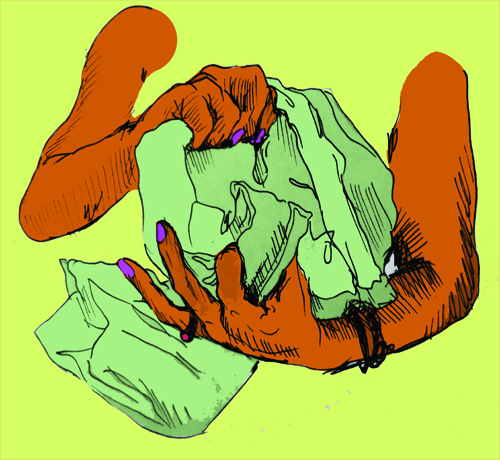Last month, news of a possible real-world purge in multiple American cities spread across the internet like wildfire. Inspired by Facebook posts from Louisville announcing that all laws and emergency services would be suspended for a twelve hour period, copycat hoaxes soon popped up Jacksonville, Detroit, the Bay Area, and other major US cities. The news went viral, Louisville police took the threat seriously, and, in the end, nothing happened. While the hoax sparked fear of looting and homicide through social media and news sites, it was fortunately anticlimactic. But it raises the opportunity to discuss current events and the ideology that drives them. In particular, why anybody would be attracted to enacting a purge-like scenario in the real world?
Tag Archives: marx
The Salesperson’s Stories
 With a wallet freshly fattened by my first commission check, I proudly marched into my place of employ for the first time not as a salesperson, but as a customer. My feet springing on the buoyant surface of the socioeconomic level to which I had ascended, I readied myself to at last engage in the ritual to which my newly heightened stature earned exclusive participatory rights. In so many words, I prepared myself to make a purchase. But this wasn’t just any purchase. For I wouldn’t return to the grand threshold of Barneys New York with eggs or bread, pots or pans, socks or underwear. My purpose at this moment was singular in its irreverent flouting of necessity for the sake of paying worship to its opposite. Luxury, a quality that I saw living and breathing in the seams of that Fall 2010 Balenciaga dress. A design roused from the house’s storied archives, it was classic, it was modern, it was fabulous. It was most definitely worth $1,395.
With a wallet freshly fattened by my first commission check, I proudly marched into my place of employ for the first time not as a salesperson, but as a customer. My feet springing on the buoyant surface of the socioeconomic level to which I had ascended, I readied myself to at last engage in the ritual to which my newly heightened stature earned exclusive participatory rights. In so many words, I prepared myself to make a purchase. But this wasn’t just any purchase. For I wouldn’t return to the grand threshold of Barneys New York with eggs or bread, pots or pans, socks or underwear. My purpose at this moment was singular in its irreverent flouting of necessity for the sake of paying worship to its opposite. Luxury, a quality that I saw living and breathing in the seams of that Fall 2010 Balenciaga dress. A design roused from the house’s storied archives, it was classic, it was modern, it was fabulous. It was most definitely worth $1,395.
The concept of such an object’s value, ensconced as it is within the artificial structures of production and consumption that gird the tenuous constructs of the capitalist economy, is necessarily divorced from the reality of its utility. Rather, the value assigned stems from a collective illusion, internally generated and externally sustained, of the worth of that object’s possession. Such worth is illusory because the desire to own an object is preceded by the desire to acquire the object. In other words, the desire to have obscures the more pressing desire to shop. Continue reading
